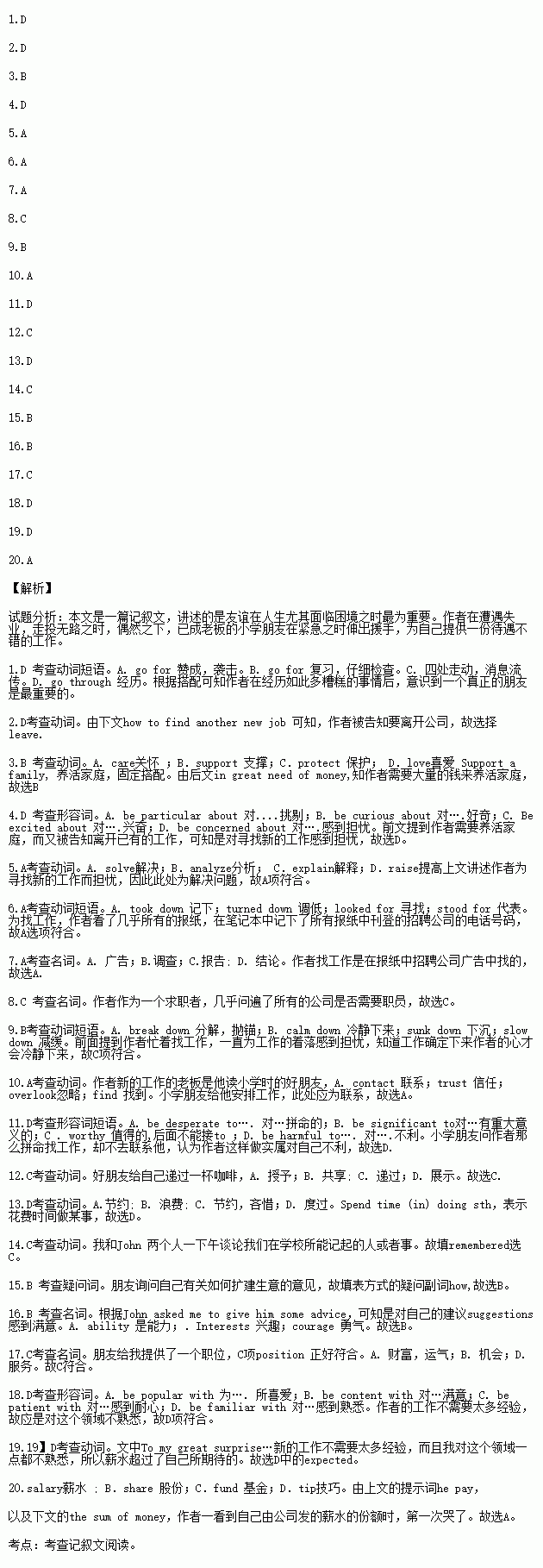题目内容
Every one of us, rich or poor, should at least have one or two good friends. I learned that a true friend is the most important in my life after I had gone so many terrible things. I felt upset when I was told that I would have to the company. As I had a very big family to and was in great need of money, what I was about was how to find another new job. In order to this problem, I rushed from place to place like crazy. I read almost all the newspapers and almost all the telephone numbers in the newspaper in my notebook and tried to call almost all the companies that needed new . Not until I found a job in a small town near Townsville had I down. My new boss, Mr. Johnson, was one of my good friends since primary school. “Why didn’t you me until now? Was it to do that ? Explain to me the reason,” he said, me a cup of hot coffee. Both of us were overjoyed to see each other and we the whole afternoon talking about things and persons that we at school. John asked me to give him some advice about to enlarge his present business and he was entirely happy about my . To my great surprise, he offered me a which didn’t need much experience because I was not with this field but the pay l got was much more than . The moment I saw my , the sum of money given by the company, I cried for the first time — that was the first time for me to do so since I grew up.
1.A.for B.over C.around D.through
2.A.operate B.desert C.choose D.leave
3.A.care B.support C.protect D.love
4.A.particular B.curious C.excited D.concerned
5.A.solve B.analyze C.explain D.raise
6.A.took down B.turned down C.looked for D.stood for
7.A.advertisements B.surveys C.reports D.comments
8.A.customers B.bosses C.clerks D.applicants
9.A.broken B.calmed C.sunk D.slowed
10.A.contact B.trust C.overlook D.find
11.A.desperate B.significant C.worthy D.harmful
12.A.awarding B.sharing C.handing D.showing
13.A.saved B.wasted C.spared D.spent
14.A.discussed B.debated C.remembered D.imagined
15.A.what B.how C.which D.when
16.A. ability B.suggestions C.interests D.courage
17.A.fortune B.chance C.position D.service
18.A.popular B.content C.patient D.familiar
19.A.offered B.required C.needed D.expected
20.A.salary B.share C.fund D.tip
 桃李文化快乐暑假武汉出版社系列答案
桃李文化快乐暑假武汉出版社系列答案 优秀生快乐假期每一天全新寒假作业本系列答案
优秀生快乐假期每一天全新寒假作业本系列答案
